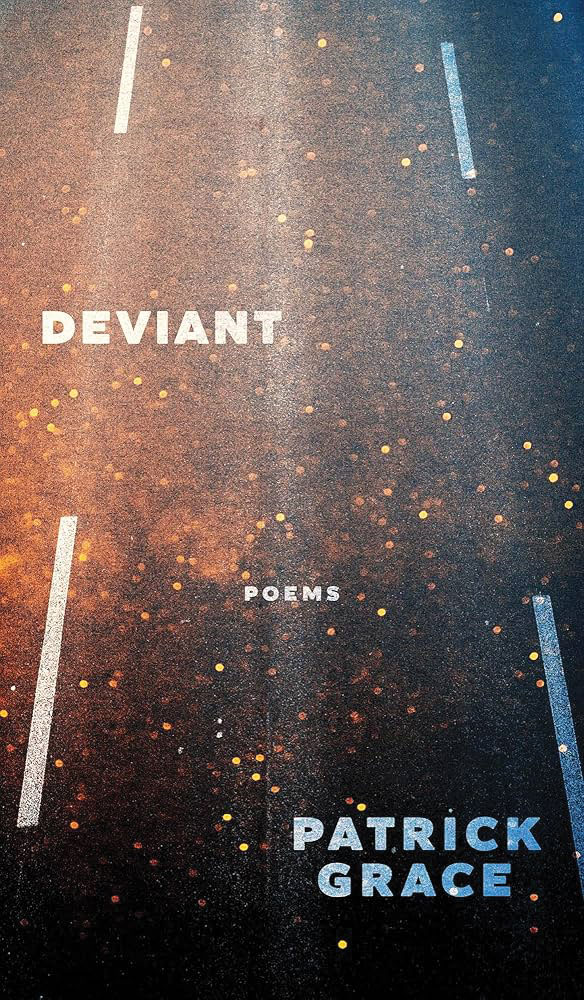In his first full-length book of poems, Patrick Grace, managing editor of Plenitude, Canada’s online journal of LGBTQ2S+ writing, casts a searing light into the unseen places where queer desire collides with male aggression. While men’s abuse of women continues to be a deplorable, near-daily staple of global headlines, intimate-partner violence between gay men is far less reported and no more likely to be believed. Deviant recalls Histoire de la violence, in which French author Édouard Louis narrates his rape by a man he picked up off the street one Christmas Day. Despite unambiguous DNA evidence that linked the accused to the crime, the Parisian judge presiding over a later court proceeding found him guilty of nothing more bruising than theft. With an acuity paralleling Louis’s own forensic parsing of the injuries he sustained, Grace asks us to slip inside his skin and feel for ourselves the emotional and physical blows landed by his partner and the authorities alike: “did the man in blue believe/ another man/ committed the violence/ because it’s always a man/ you have to talk to/ on the other end/ you have to convince/ on the other end/ who finds it/ inconclusive/ domestic/ misunderstanding/ I still find/ glass in the bedroom/ the yelling light/ the breath over and over.” The punch-like directness of Grace’s lines substantiates my persistent misreading of the title he chose for this collection as “defiant.” How true it is that the best revenge is writing well.
Deviant is admittedly much more than a social autopsy of the cruelties rained down upon Grace by another man’s fists. Nor do the book’s other poems sugarcoat gay-male realities in “the kids-are-alright” rationalizations that our betters like to trumpet about the rights that LGBTQ2S+ people benefit from today. Like Louis, Grace is a millennial (“I straddle the line// between inexperienced and educated/ Gen-Y think tank chugging along”) and he’s well aware that the agency he enjoys as a queer person (“I have the best memory/ of what it means/ to be gay/ at the end/ of summer./ By gay I mean/ wondrous,/ the sun/ hitting/ our thankless bodies”) owes much to the freedoms secured by past generations (“Not every driver wanted me dead/ that summer of broken yellow lights”). Deviant nonetheless attests to the risible fact that all’s not yet irrevocably peachy in Emerald City: men still meet on the down-low in bathrooms (“Men beckon you into the stall with a wave”) and despite “kiss[ing]” like they do on TV, feigning aplomb,/ thinking this is what a teenage boy desires,” “it’s in your best interest to mistrust/ the ones who watch you watch.” In these unyielding poems Grace makes it clear that through what he calls our “animalself” we leave ourselves open to both the beauty and the abuse.
John Barton will publish Compulsory Figures in 2025.
_______________________________________


